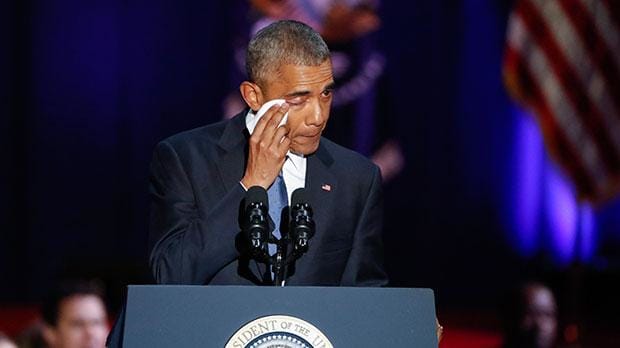In the beginning and the end of the office of important political actors, such as the President of the US, it is rather customary to make assessments. At the beginning of the presidential term, these assessments are more difficult to make, since it means projecting into the future with little information. At the end of the term, such efforts seem much easier as they are rather an appraisal; they require, however, caution as many of the adopted policies may have not yet produced all their results, positive or negative.
In the case of Barack Obama, this appraisal is, at least for me, obvious: he is a politician that can be cited as a model of those that the International Relations theory calls “rationalists”. It is them who believe in the capacity of individuals to act rationally, better themselves progressively, cooperate, respect the rules, promote their interests through the use of diplomatic means, and resort to violence only when is absolutely needed and to the minimum extend.
The Obama statements, as recorded through the first and the second electoral campaigns, were in accordance with this typology. For anyone who follows international affairs and has the average memory, it was obvious that the new President, with little experience in international politics, would give priority, as the difficult economic situation of the US required, to domestic issues. This is exactly what he did. Eight years later, no one doubts that the US economy is no longer at risk, it has recovered, and, most importantly, it keeps creating new jobs.
Questions were raised, however, on whether and even if, based on his statements, the United States would withdraw from Afghanistan and Iraq, whether and if they would fight against international terrorism (then called Al Qaeda), how would their relations evolve with Iran, Russia and China, or how would they act on matters regarding the developing world, the environment and democratization. All these questions were indeed answered.
The United States withdrew partially from Afghanistan, fully from Iraq (later, to return indirectly), succeeded decisive blows against Al Qaeda, have reached an agreement on the nuclear weapons program of Iran, restored relations with Cuba, undertook initiatives and contributed to the adoption and implementation of new agreements on the environment and international trade, and tried, albeit timidly, to encourage democratic changes in various Asian and African countries. At the same time, they were confronted with a series of challenges: the consequences of the “Arab Spring” and the war in Libya, the appearance of ISIS and the Iraqi war, the war in Syria, the Ukraine crisis and the annexation of Crimea, the revisionist intentions of Russia and China, as well as, the challenges set by the North Korean dictator.
In dealing with all these issues, the main aspect that emerged was the personality, the personal style (or the way) in the conduct of international affairs, and, at the same time, the charisma of a President, who, by being different from his predecessors, has often impressed his interlocutors and audiences abroad. Obama has projected a different way of exercising power, perhaps more humane, and closer to what he understands as “American values”. It is this precisely that enabled him to promote the US image abroad in a different way and make a lot of people in the world, especially the majority of the Europeans, feel safer and part of a wider community. During his time, the American image was not so much that of a “hard” power, but rather that of a “soft” power, as it was expressed by his radiant personality and his words.
Was this “soft” power sufficient, however, to successfully cope with all the issues that came up, or to allow him to fulfill his commitments? The answer is, unfortunately, no. This is because, on one hand, what really matters in the international system is the correlation of forces and “hard” power (the “stick”), and, on the other, he had to deal with other leaders, who, as known, do not perceive the world in his way. Apparently, he attained the limits of “soft” power in a highly competitive international system, which does not allow for gaps, and where leaders and powers continuously attempt to redefine their position.
It is uncertain whether his eight-year foreign policy will benefit the US in the long run. However, the economic recovery, the implementation of some policies (energy, the environment, Iran, Cuba) and the significant improvement of the US image abroad are credited to him. According to various indicators, the USA is, in many respects, stronger today than in 2008. It is certain that this is something the outgoing President will be also credited for. It is also certain that the US image in the world is much more attractive than the previous and, perhaps, of the one in the future.


